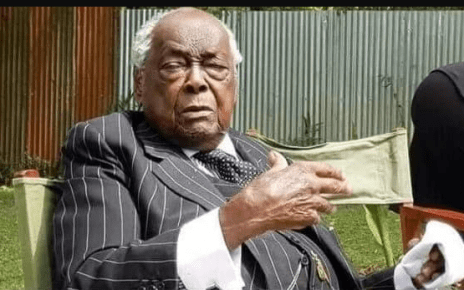Healthcare services within government hospitals in Kenya continue to face disruption, leaving many patients unable to afford treatment in private facilities. This crisis has persisted for three weeks consecutively as doctors, adamant in their demands, prolong their industrial action until their grievances are met.
The strike, led by the Kenya Medical Practitioners, Pharmacists and Dentists Union (KMPDU), has seen over 7,000 healthcare professionals suspend their services since mid-March, instead participating in street protests across major cities. Their primary demands include better compensation, improved working conditions, and the permanent employment of trainee doctors.
Despite a government offer of KSh2.4bn ($18.4m) aimed at addressing the employment of trainee doctors, the doctors’ union rejected the proposal, emphasizing their insistence on the full implementation of the 2017 Collective Bargaining Agreement, which concluded a prolonged strike at that time.
Abidan Mwachi, the national chairman of the doctors’ union, expressed disappointment in the government’s failure to honor its commitments, directly addressing President William Ruto.
Additionally, the union has refused to allow intern physicians to accept internships from the Ministry of Health, citing inadequate salaries proposed by the government. The KMPDU insists that these interns should receive no less than KSh150,000 per month, as previously agreed upon.
Negotiations between Health Minister Susan Nakhumicha and health officials have faltered, with the government citing economic challenges and past agreements as hindrances to meeting the doctors’ demands. However, such explanations have only intensified the frustration among healthcare workers.
The plight of doctors like Tony, who despite completing training two years ago, remain unemployed, underscores the broader issues faced by healthcare professionals in Kenya. George Gebore, another doctor participating in the strike, highlights the dire circumstances faced by doctors due to inadequate compensation, despite their essential roles.
While some doctors, like Justus, continue to attend to patients out of necessity, the overarching sentiment remains one of discontent and a call for the government to address their concerns promptly.
Opposition figures, including Raila Odinga, have criticized the government’s handling of the situation, urging swift resolution. Embakasi East MP Babu Owino has gone further, filing an impeachment motion against Health Minister Susan Nakhumicha over alleged constitutional violations and incompetence.
The Labour Court has intervened, ordering dialogue to resolve the stalemate within 14 days. However, government officials, such as spokesman Isaac Mwaura, allege political motivations behind the strike, accusing it of aiming to disrupt health reforms planned by the administration.



